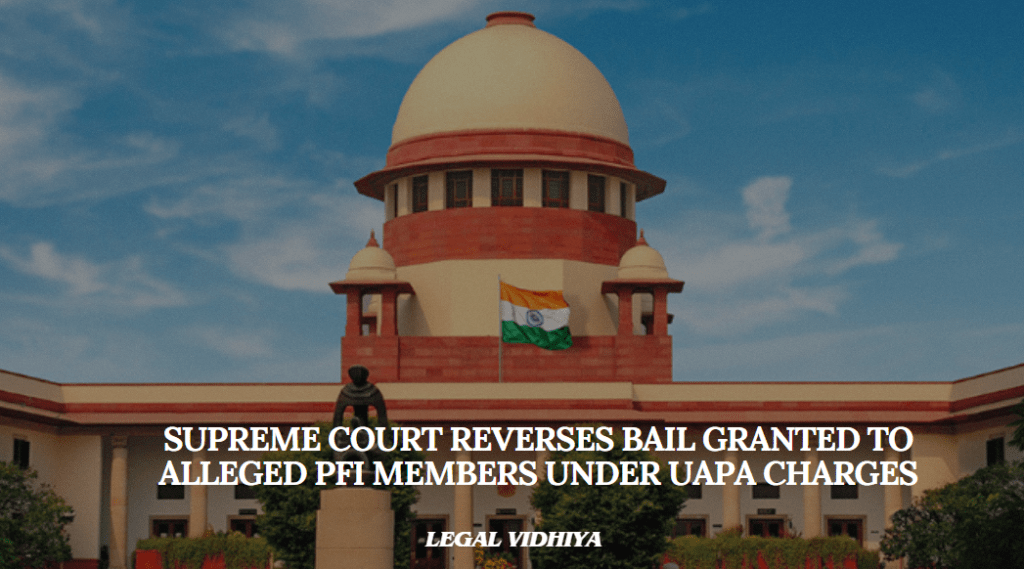
In a significant ruling on Wednesday (May 22), the Supreme Court overturned the Madras High Court’s decision to grant bail to eight individuals allegedly affiliated with the banned organization Popular Front of India (PFI) and charged under the Unlawful Activities Prevention Act (UAPA). The Court revoked the bail, citing that the allegations of these individuals collecting funds to commit terrorist acts appeared to be ‘prima facie true’.
The bench comprising Justices Bela Trivedi and Pankaj Mithal addressed a challenge by the National Investigating Agency (NIA) against the High Court’s order dated October 19, 2023. Taking into account the gravity of the charges, the duration of their incarceration amounting to 1.5 years, and the evidence presented by the NIA, the bench decided to intervene and annul the impugned order. Additionally, the Court directed that the trial proceedings be expedited.
…The accusations against the respondents are prima facie true and the mandate of proviso contained in S. 43D (5) of the UAPA would be applicable for not releasing the respondents on bail. Having regard to the seriousness and gravity of the offences, previous criminal history of the respondents as mentioned in the charge sheet, the period of custody undergone by the accused being hardly 1.5 years, the severity of the offence, the prima facie material collected during the course of the investigation, the impugned order by High Court cannot be sustained. We are conscious of the legal position that we should be slow in interfering with the order when the bail has been granted by the High Court, however it is equally settled that if such order of granting bail is found to be illegal or perverse, it must be set aside.”
Furthermore, the Supreme Court emphasized the significance of the UAPA in combating terrorist activities and safeguarding national security interests. It noted that the restrictions imposed on the civil liberties of individuals or associations accused under the UAPA are necessary to maintain the sovereignty and integrity of India.
The Court remarked, “National security is paramount, and any act associated with terrorist activities, whether violent or non-violent, warrants restriction. The UAPA is enacted to prevent unlawful activities and deal with terrorist acts while imposing reasonable restrictions on civil liberties in the interest of India’s sovereignty and integrity.”
Consequently, the Supreme Court annulled the High Court’s order and directed the respondents to surrender immediately to the NIA. Additionally, it instructed the Special Court to expedite the trial proceedings in accordance with the law, emphasizing that the judgment’s observations should not influence the trial.
This ruling underscores the judiciary’s commitment to upholding national security measures and ensuring the effective implementation of laws aimed at combating terrorism in India.
Written by- Pradyumn sharma.
Disclaimer: The materials provided herein are intended solely for informational purposes. Accessing or using the site or the materials does not establish an attorney-client relationship. The information presented on this site is not to be construed as legal or professional advice, and it should not be relied upon for such purposes or used as a substitute for advice from a licensed attorney in your state. Additionally, the viewpoint presented by the author is of a personal nature




0 Comments